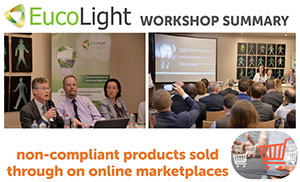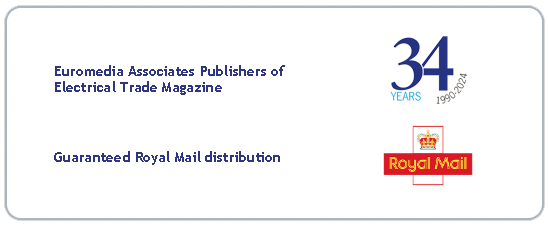Voltacon Solar Exports Solar Panels Across Europe

An experienced Midlands energy renewable company is exporting its solar panels to homes and businesses across Europe. Voltacon Solar, which is based at the Burnsall Road Industrial Estate in Coventry, was established in 2002 and assembles and tests off grid and energy storage systems from its purpose-built premises which has 20kW Solar Array installed and multiple test facilities for solar panels. Voltacon Solar managing director Stefanos Kandilidis designs the panels which are manufactured in China while the batteries are manufactured in Germany as the company supplies customers with the entire package needed to install solar systems. Stefanos said they have successfully installed more than 20MW of grid-tied systems throughout Europe over the last 16 years. “We have residential and business customers in the UK and Europe and until we started selling solar panels, we never realised so many British people had holiday homes abroad,” he said. “We have now sold solar panels to people living in Spain, Portugal, France, Greece and Gran Canaria as well as every corner of the UK. “African rural communities that live completely off the grid have trusted our business to supply complete photovoltaic systems including solar panels, batteries, inverters and accessories. “Some of our customers live completely off the grid in farms in Wales and Scotland and rely on the solar panels for their heat and lighting since they have no means of connecting to electricity. “Since we started selling solar panels in 2002, the cost of the equipment has markedly reduced which means it is only taking customers four to five years to start receiving the financial benefits. “The technology is viable and affordable to the public because it isn’t as expensive as it was when we started trading in 2002 and with the cost of electricity rising on average by eight per cent each year, more and more of our customers whether they live in the UK or abroad are taking full advantage to switch from fossil fuel to renewable energy. “From chatting to people, it is often thought it is complicated to switch to solar panels but that is not the case and some of our customers have installed the system themselves after buying everything from www.voltaconsolar.com and we provide an after-care service as well.” Stefanos said Voltacon is also practicing what it preaches since its business unit and his family home are 100 per cent environmentally friendly. Its UK warehouse and showroom are independent from the national grid so their carbon footprint is one of the greenest in the country. He said: “Our business on the industrial estate is completely self-sufficient energy-wise after we installed solar panels when we moved here four years ago. “From our own experiences at home, it is a big comfort to know that we can switch on the lighting and use appliances such as the washing machine without it being expensive because our energy supply is self-sufficient.”
Online marketplaces: a serious issue all over Europe

A workshop, hosted by Eucolight, the European association for lighting WEEE compliance schemes, gathered over 100 experts to discuss online sales of non-compliant products. The workshop concluded that solutions must be implemented to make online marketplaces responsible for products sold through their portals. The workshop, held in Brussels on 17 October, discussed the widespread availability of products through online marketplaces that do not comply with consumer safety standards, VAT requirements, and environmental obligations. High level speakers discussed who should be legally responsible for the non-conformity of products, and how this can be introduced into European and national legislation. The scale of the problem Leva Vardanyan, Market Compliance Manager of the Lighting Industry Association (LIA), reported on a retail mystery shopper testing study. The initial findings of the survey revealed that a high proportion of lighting products sold through online marketplaces have serious electrical safety risks. According to Ms Vardanyan, just removing the individual products detected from the market cannot be the solution, changes in the law and stronger tools for market surveillance are needed. Richard Allen, Lobbyist from Retailers Against VAT Abuse Schemes (RAVAS) described the large scale of VAT avoidance through online platforms. He argued that marketplaces have a great responsibility here. Through amendments to VAT legislation, the EU and and some Member States are supporting this approach and making marketplaces responsible. Germany, where there are new VAT obligations for online marketplaces if the seller is not compliant, is a good example. Nigel Harvey, Chief Executive of Recolight described a study undertaken by the WEEE Scheme Forum, to check the WEEE compliance of products sold through online marketplaces. This showed that 54% of power tools, 76% of LED lightbulbs, and 88% of fitness watches did not comply. Commenting on the study, Nigel Harvey said “Evidence shows there is large scale WEEE non-compliance sales through online marketplaces. High street retailers have, for many years, checked the compliance of equipment producers. Online marketplace operators could – and should – do the same. There can be no excuse for knowingly aiding the sale of products that break the law.” Monika Romenska, Regulatory & Public Affairs Manager,of EXPRA (Extended Producer Responsibility Alliance for Packaging and Packaging waste) added “Distance sales already represent up to 20 – 30 per cent of the market across various waste streams in certain Member States. By avoiding paying for their collection and reprocessing costs, these sales distort the market: they impose an unfair cost on compliant producers, thus rendering these – mostly local companies – less competitive.” The importance of greater consumer education was also mentioned. Triin Saag, of the European eCommerce & Omni-Channel Trade Association (EMOTA) argued, for example, that “product safety is a two way street where consumers should also be educated.” Views from the Commission Hans Ingels of DG Growth, speaking about the Goods Package, highlighted three principles for Member States to counteract an over-extended presence of non-compliant products on the market “1) working with businesses to prevent non-compliances instead of only policing the market; 2) fit-for purpose tools to check online sales of products and follow-up; and 3) improved cooperation between authorities across the EU.” Bettina Lorz, of DG Environment, supported coordinate enforcement actions at supra national/ national level. She argued that customs, tax and enforcement officials should work in a joined-up fashion with the environmental authorities on product regulation and enforcement: The Goods Package could be a good opportunity for implement this kind of synergy. Next steps – online marketplaces must take responsibility Summarizing the discussions, Marc Guiraud, Secretary General of EucoLight, stated ‘It is urgent for policy makers and online marketplaces to take action to address non-compliance of products sold online. Member States are already starting to implement this at a national level”.




